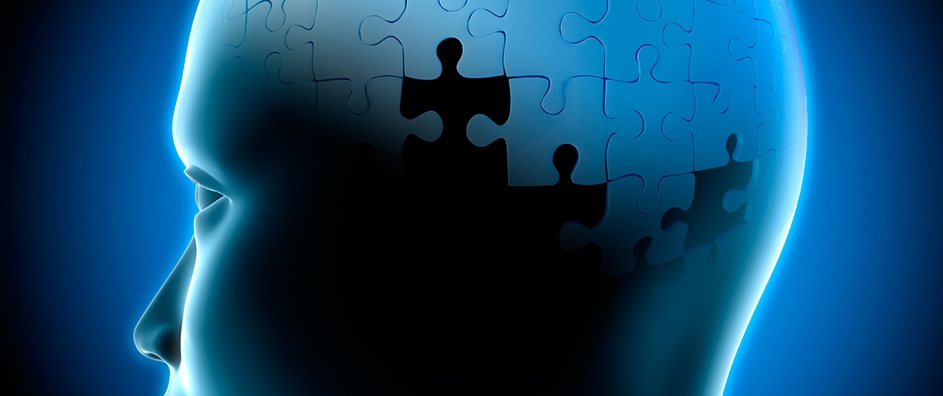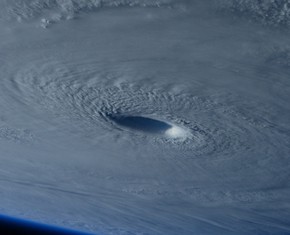The views expressed in our content reflect individual perspectives and do not represent the authoritative views of the Baha'i Faith.
You can learn a great deal about any subject by studying its opposite. When I worked, during college, at a large mental hospital, I had the unsettling experience of meeting several sociopaths, and they taught me a lot about the human conscience.
A sociopath (sometimes called a psychopath) has what psychiatrists characterize as an “anti-social personality disorder,” otherwise known as ASPD. People with ASPD, according to the Diagnostic and Statistical Manual or DSM, show “a pervasive pattern of disregard for, or violation of, the rights of others. There may be an impoverished moral sense or conscience and a history of crime, legal problems, and impulsive and aggressive behavior.” Basically, sociopaths don’t seem to have much of a conscience. Instead, they behave in anti-social ways, exhibiting few inhibitions about harming others. They have severely-diminished abilities to feel guilt or remorse. They tend to have very low or non-existent empathy, and focus almost entirely on gratifying themselves at everyone else’s expense.
One of the mental hospital patients I got to know—we’ll call him Mike, although that’s not his real name—seemed like a really charming, charismatic person when we first met. Initially, I couldn’t figure out why he was a patient. He seemed so normal, friendly and functional. But others who worked with me warned me about Mike: “Be careful. He’ll cajole and manipulate and do anything to get his way,” they told me. It turned out that Mike had a very well-honed ability to lie convincingly. He used that twisted ability to take advantage of women, and had left several of them penniless and devastated victims as a result. Each of these women thought they had a wonderful relationship with Mike, apparently, until he tricked them out of everything they had, including their life savings, their emotional well-being and their trust in others. A court determined that Mike had a mental illness, and instead of going to prison for his crimes, he wound up in the mental hospital where I met him.
I talked to our hospital psychiatrist about Mike, and I learned something from the doctor about the human conscience. The psychiatrist told me that Mike’s ASPD wasn’t treatable, couldn’t be addressed with therapeutic drugs and didn’t have any known cure. “He has no conscience,” the doctor said, “no way of understanding or caring about how his actions make other people feel. He can’t love, and he can’t reciprocate love.” I researched the condition a little more, and found these descriptors applied to ASPD: callous, amoral, nomadic, covetous, risk-taking, malevolent, tyrannical, malignant, unprincipled, disingenuous, spineless, explosive, and abrasive.
This lack of a conscience struck me as the definition of hell.
Since then I’ve had an interest in the ASPD diagnosis, and in the subject of our human conscience. Luckily, ASPD is rare, but that may be because sociopaths often have well-developed, convincing ways of camouflaging and masking their disorder. Recent research has begun to indicate that ASPD may have organic causes, especially traumatic brain injury (TBI), which damages the prefrontal cortex and can result in a complete inability to make socially or morally acceptable decisions. Early-stage research is ongoing, but one prison study concluded that up to 60% of prisoners may have ASPD as a result of traumatic brain injury, possibly caused by “shaken-baby syndrome”—child abuse by violent shaking.
Have you ever known anyone with ASPD, or simply someone without much of a conscience? If so, I hope you avoided the terrible consequences that many people have suffered as a result. War criminals, serial killers and rapists, and corrupt despots have a similar absence of conscience, and many may have ASPD.
These kinds of effects tell us something important about human spirituality, and about the role our conscience plays in our spiritual lives. From this extremely negative example of mental illness, we can infer a great deal about what constitutes a positive, healthy conscience: the exact opposite of the symptoms and behaviors associated with ASPD. The DSM says that ASPD looks like this:
- failure to conform to social norms with respect to lawful behaviors as indicated by repeatedly performing acts that are grounds for arrest;
- deception, as indicated by repeatedly lying, use of aliases, or conning others for personal profit or pleasure;
- impulsivity or failure to plan ahead;
- irritability and aggressiveness, as indicated by repeated physical fights or assaults;
- reckless disregard for safety of self or others;
- consistent irresponsibility, as indicated by repeated failure to sustain consistent work behavior or honor financial obligations;
- lack of remorse, as indicated by being indifferent to or rationalizing having hurt, mistreated, or stolen from another.
So we know, by inverting these symptoms, that someone with a healthy, functioning conscience:
- tries to obey the laws and norms of society and of Faith;
- tells the truth;
- plans ahead and avoids impulsivity that could hurt others;
- refrains from combative or physically aggressive behaviors;
- cares about and protects the safety of others and themselves;
- honors promises, works diligently and behaves responsibly;
- feels remorse and actively tries to correct any behavior that causes harm.
Doesn’t that sound like a spiritually healthy set of character traits? Here’s a remarkably resonant definition of an ethical conscience from the Baha’i teachings:
The divine religions embody two kinds of ordinances. First, there are those which constitute essential, or spiritual, teachings of the Word of God. These are faith in God, the acquirement of the virtues which characterize perfect manhood, praiseworthy moralities, the acquisition of the bestowals and bounties emanating from the divine effulgences — in brief, the ordinances which concern the realm of morals and ethics. This is the fundamental aspect of the religion of God, and this is of the highest importance because knowledge of God is the fundamental requirement of man… Even as God is pronounced to be just, man must likewise be just. As God is loving and kind to all men, man must likewise manifest loving-kindness to all humanity. As God is loyal and truthful, man must show forth the same attributes in the human world. Even as God exercises mercy toward all, man must prove himself to be the manifestation of mercy. In a word, the image and likeness of God constitute the virtues of God, and man is intended to become the recipient of the effulgences of divine attributes. This is the essential foundation of all the divine religions, the reality itself, common to all. Abraham promulgated this; Moses proclaimed it. Christ and all the Prophets upheld this standard and aspect of divine religion. – Abdu’l-Baha, The Promulgation of Universal Peace, p. 403.
You May Also Like
Comments

















first leaf
of the Most Exalted Paradise is this: Verily I say: The fear of God hath ever been a sure ...defence and a safe stronghold for all the peoples of the world. It is the chief cause of the protection of mankind, and the supreme instrument for its preservation. Indeed, there existeth in man a faculty which deterreth him from, and guardeth him against, whatever is unworthy and unseemly, and which is known as his sense of shame. This, however, is confined to but a few; all have not possessed and do not possess it." --Bahá’u’lláh, Tablets of Bahá’u’lláh Revealed After the Kitáb-i-Aqdas, US Bahá’í Publishing Trust, 1988 pocket-size edition, p. 63
I found his work when I had an unfortunate encounter with a sociopath. Boy, was I fooled. There was always something “not quite right” about this woman, but I could never put it into words. Manipulative as all get out. She talked her way into living in ...my home- completely free of charge. Had to evict her.
Chorus.
... "I CARE FOR NOBODY, NO NOT I, AND NOBODY CARES FOR ME."
This came to mind and is SO vitally important to all babies/toddlers/children and all creatures great and small. Just love.
While lack of conscience may come from a TBI, it is probably more common in people with Attachment Disorder. This occurs when ...an infant is unable to make a secure attachment to a consistent caregiver. When the child learns that crying, or any other form of communication of which he is capable, will not get his needs met on any kind of consistent basis, he tends to accept that the only one who will meet his needs is himself. Thus the human need to love and be loved seems to all turn inward and the child no longer cares what others think or feel. Obviously, this is the part of the psyche where conscience develops - or doesn't.
Marinell Rhine (former LCSW)